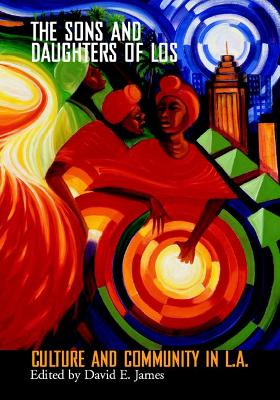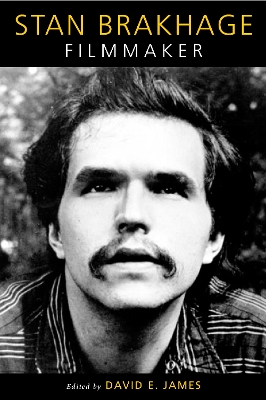Wide Angle Books
2 total works
Los Angeles. A city that is synonymous with celebrity and mass-market culture, is also, according to David James, synonymous with social alienation and dispersal. In the communities of Los Angeles, artists, cultural institutions and activities exist in ways that are often concealed from sight, obscured by the powerful presence of Hollywood and its machinations. In this significant collection of original essays, The Sons and Daughters of Los reconstructs the city of Los Angeles with new cultural connections. Explored here are the communities that offer alternatives to the picture of L..A. as a conglomeration of studios and mass media. Each essay examines a particular piece of, or place in, Los Angeles cultural life: from the Beyond Baroque Poetry Foundation, the Woman's Building, to Highways, and LACE, as well as the achievements of these grassroots initiatives. Also included is critical commentary on important artists, including Harry Gamboa, Jr., and others whose work have done much to shape popular culture in L.A.
The cumulative effect of reading this book is to see a very different city take shape, one whose cultural landscape is far more innovative and reflective of the diversity of the city's people than mainstream notions of it suggest. The Sons and Daughters of Los offers a substantive and complicated picture of the way culture plays itself it out on the smallest scale-in one of the largest metropolises on earth-contributing to a richer, more textured understanding of the vibrancy of urban life and art.
The cumulative effect of reading this book is to see a very different city take shape, one whose cultural landscape is far more innovative and reflective of the diversity of the city's people than mainstream notions of it suggest. The Sons and Daughters of Los offers a substantive and complicated picture of the way culture plays itself it out on the smallest scale-in one of the largest metropolises on earth-contributing to a richer, more textured understanding of the vibrancy of urban life and art.
Stan Brakhage: Filmmaker is a collection of essays, photographs, personal statements, and reminiscences about the celebrated avant-garde filmmaker who died in 2003. The director of nearly four hundred short films, including Dog Star Man, Parts I-IV, and the Roman Numeral Series, Brakhage is widely recognized as one of the great artists of the medium. His shorts eschewed traditional narrative structure, and his innovations in fast cutting, hand-held camerawork, and multiple superimpositions created an unprecedentedly rich texture of images that provided the vocabulary for the explosion of independent filmmaking in the 1960s. Stan Brakhage: Filmmaker chronicles both the director's personal and formal development. The essays in this book-by historians, filmmakers, and other artists-assess Brakhage's contributions to the aesthetic and political history of filmmaking, from his emergence on the film scene and the establishment of his reputation, to the early-1980s. The result is a remarkable tribute to this lyrical, visionary artist.

